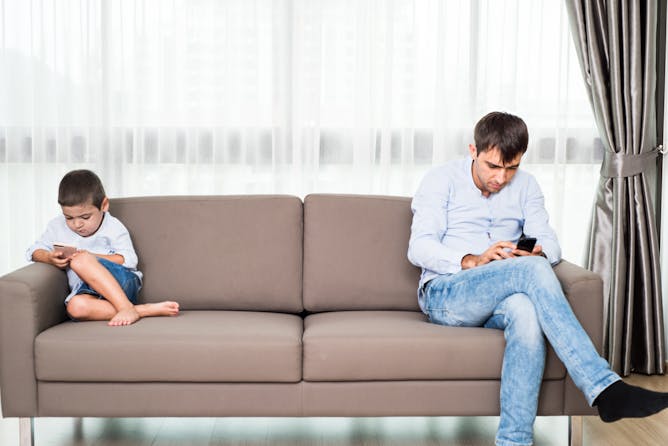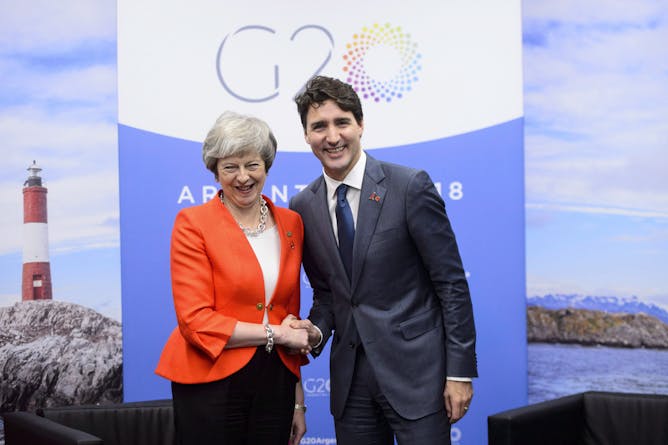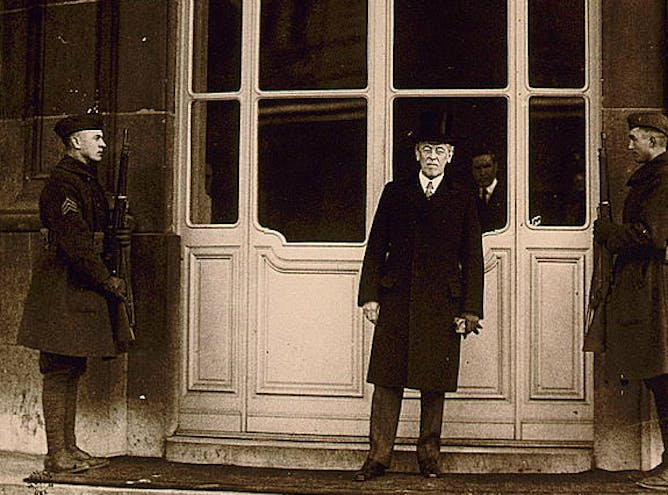|
Happy Second Day of 2019 and the return of The Conversation Canada to its regular publication schedule. And what better way to start off the year than with a great piece on a resolution we should all take on: reducing our screen time to make way for better family time. Sheri Madigan and Rachel Eirich of the University of Calgary team up with Dillon Thomas Browne of the University of Waterloo to explain “technoference” – the intrusions of digital devices during social interactions and the implications those intrusions have on parenting.
Kim Snow of Ryerson University tells us about a program she started called The Voyager Project, which helps young people who were under state care attain their post-secondary educational goals.
Two other Ryerson authors, Deborah de Lange and Philip Walsh, propose how a worldwide “circular economy” – one that avoids waste by reusing and regenerating end products – could be created in 2019.
And finally…it’s been 100 years since the end of the First World War and this year marks the centenary of the Paris peace talks after the war. J.M. Opal of McGill University and Steven Opal of Brown University look back about how a suspected case of Spanish flu may have impacted then U.S. President Woodrow Wilson’s behaviour at the peace talks.
Regards,
|

The excessive use of mobile devices by parents is wreaking havoc on children, and family dynamics.
(Shutterstock)
Sheri Madigan, University of Calgary; Dillon Thomas Browne, University of Waterloo; Rachel Eirich, University of Calgary
It's not too late for a New Year's resolution. If you're a parent - resolving to stop 'technofering' could be one of the most important things you do this year.
|

Young people in temporary or continuing care need to be provided with educational enrichment programs to help identify learning challenges, remediate education deficits and foster a sense of connectedness.
Shutterstock
Kim Snow, Ryerson University
Amid long-standing societal and policy issues that need to be addressed, young people in care deserve special consideration and focused attention regarding how to meet their educational needs.
|

Prime Minister Justin Trudeau meets British Prime Minister Theresa May at the G20 Summit in Buenos Aires, Argentina, on Dec. 1, 2018. Post-Brexit, Canada and the U.K. have a chance to transform their economies by working together.
THE CANADIAN PRESS/Sean Kilpatrick
Deborah de Lange, Ryerson University; Philip R Walsh, Ryerson University
As 2019 dawns, a worldwide circular economy could be created through international trade and trade agreements like the one that could be forged between Canada and the U.K., post-Brexit.
|

President Woodrow Wilson in Paris, Jan. 1919.
United States. Army. Signal Corps, photographer/Library of Congress
J.M. Opal, McGill University; Steven M Opal, Brown University
While negotiating the end of the First World War at the Versailles Peace Conference, U.S. President Woodrow Wilson collapsed. Was it a neurological disorder associated with the Spanish Flu?
|
Politics
|
-
Benjamin H. Bradlow, Brown University
Brazil's new president – often called the 'Trump of the tropics' for his inflammatory, right-wing rhetoric – won over poorer voters by stoking fear and resentment. Can he make them happy?
|
|
Business + Economy
|
-
Frank J. Cilluffo, Auburn University; Sharon L. Cardash, Auburn University
Intelligence officials in many countries are concerned the company could be helping the Chinese government spy on companies, military units and government agencies.
|
|
|
|